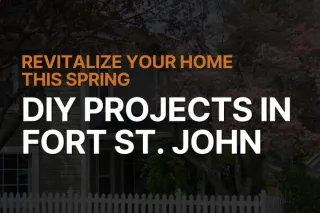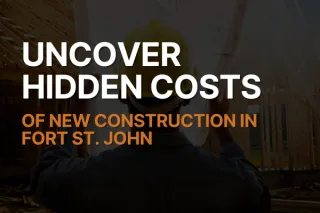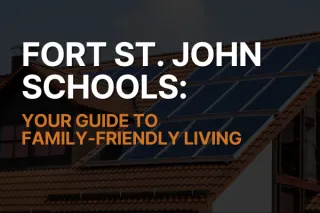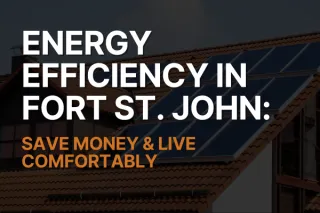
Transform Your Fort St. John Home: Summer Preparation Made Easy
Get ready for summer in Fort St. John! Discover essential tips for preparing your home's interior and exterior, from efficient cooling to outdoor entertainment. ...more
Home Care Tips
April 22, 2024•2 min read

Creating Your Ideal Family Space: A Fort St. John New Home Buyer's Guide to Overcoming Obstacles
Explore our guide to overcoming the common concerns of buying a new construction home in Fort St. John. Learn about timelines, budgeting, quality, neighborhoods, and upgrading for your dream family ho... ...more
Real Estate Tips for Buyers ,New Construction Advice
April 15, 2024•2 min read

Your Comprehensive Guide to Budgeting for Your Dream Home in Fort St. John
Explore our guide on budgeting for your new construction home in Fort St. John, with key insights on the local real estate market, mortgage planning, hidden costs, and long-term investment strategies. ...more
Real Estate Tips for Buyers
April 08, 2024•3 min read

Navigating the Fort St. John Housing Market: Top Picks for Family Living
Discover why Fort St. John, BC, is the ideal place for families. Explore family-friendly neighborhoods, the dynamic housing market, and new construction opportunities in our latest blog. ...more
Real Estate Tips for Buyers
April 02, 2024•3 min read

Boost Your Property's Appeal: Spring DIY Projects for the Savvy Fort St. John Homeowner
Discover essential DIY home renovation projects for spring in Fort St. John to enhance your property's appeal and value. Tips on sustainable upgrades, energy efficiency, and more! ...more
New Construction Advice
March 25, 2024•2 min read

Quality Matters: How to Vet Fort St. John Home Builders for Your Family Home
Discover essential tips for choosing the perfect home builder in Fort St. John. Learn how to evaluate builders for quality, reliability, and fit for your family home. Read now for expert advice on nav... ...more
New Construction Advice
March 18, 2024•2 min read

Budgeting for Your Future Home in FSJ: A Deep Dive into New Construction Hidden Fees
Discover the hidden costs of new construction in Fort St. John. This essential guide covers everything from utility fees to legal expenses, helping you budget wisely for your dream home. ...more
New Construction Advice
March 11, 2024•2 min read

Discovering the Best Schools in Fort St. John: A Family Guide for New Home Buyers
Discover the best schools in Fort St. John and how they influence real estate decisions. A family guide for new home buyers seeking the perfect blend of education and community living. ...more
Real Estate Tips for Buyers ,Fort St John School Catchments &New Construction Advice
March 04, 2024•2 min read

Maximize Comfort, Minimize Costs: Top Energy Efficiency Tips for Fort St. John Homeowners
Discover essential energy efficiency tips for Fort St. John homeowners. Learn how to maximize comfort and minimize costs in your home with our expert guide on sustainable living and home upgrades in F... ...more
New Construction Advice
February 26, 2024•2 min read
Copyright © 2024 Elizabeth Chi Personal Real Estate Corporation - Century 21 Energy Realty #101-9120 100 Ave, Fort St John, BC V1J 1X4
*Personal Real Estate Corporation. This content is not intended to solicit buyers or sellers currently under contract. Privacy Policy & Terms of Service
